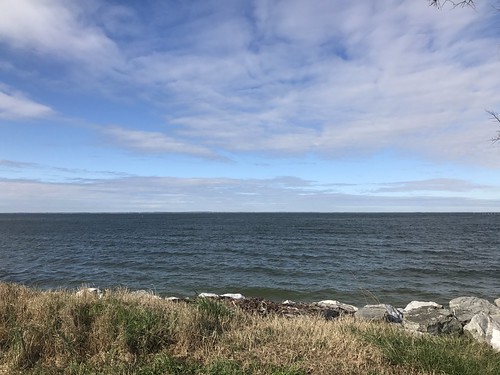Secretary’s Message – June 2023
A Healthier Chesapeake Bay Means Better Quality of Life for All

Chesapeake Bay from Point Lookout. Maryland Department of Natural Resources photo
I was proud to represent the Maryland Department of Natural Resources recently at the release of the 2022 annual Chesapeake Bay and Watershed Report Card, compiled by the University of Maryland Center for Environmental Science. In this annual scientific review of the Bay’s health, we saw an overall increase of the grade, continuing a trend over the past two years. This is an encouraging sign in the recovery of the Bay, considering climate change has made the job of improving water quality significantly harder due to increased rain and warmer water.
The Department of Natural Resources collects and analyzes most of the environmental water quality and living resource data from Maryland used in this report. We track and restore forests, wetlands, and natural areas that contribute to abundant wildlife and fisheries. But we must look beyond the numbers and data to achieve our goals. Report cards are critical for holding us accountable, but they are also important for communicating with the people the importance of the mission to restore the Bay.
The Moore-Miller Administration is particularly interested to see that the practices that we’ve been developing and distributing across the watershed provide clean water, resilience, and economic opportunity. These ends are in mind whether the action is reducing loads from wastewater treatment plants and stormwater, best management practices on agricultural land, and creation and protection of wetlands, forested buffers, living shorelines, and other critical areas. We have all long recognized that these are essential to a successful Bay restoration.
The report card has also begun incorporating a focus on people whose lives are affected by the Bay’s health, in particular on environmental justice and social vulnerability. In this area the report card unfortunately finds less success, as there are huge disparities among our communities.
Cutting edge science continues to drive our decision making, but social science must be part of the equation as we build our programs and solutions. We must partner with our communities and make clear what our collaborative efforts to restore the Bay are providing for them in return.
Our administration is dedicated to making sure that in Maryland, no one is left behind. We will continue to focus on what our solutions for Chesapeake Bay can provide for the people who live here. Because there is one thing we do want to leave behind – a better and healthier watershed for future generations.
Josh Kurtz is Secretary of the Maryland Department of Natural Resources

 1-888-373-7888
1-888-373-7888 233733
233733